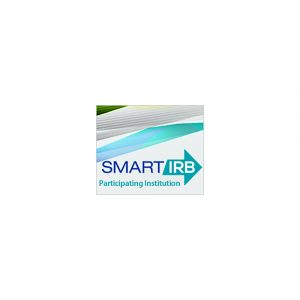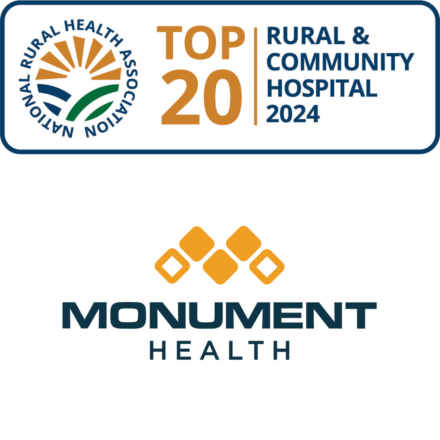
Monument Health follows rigorous standards of ethics, quality and protections for human research. Monument Health has earned a place among the world’s most respected, trustworthy research organizations by obtaining full accreditation from the Association for the Accreditation of Human Research Protection Program (AAHRPP). Holding this accreditation earns respect and meets the expectations of our peers, proves our efforts to protect research participants, reduces the risk of non-compliance, and highlights our exceptional ability to lead collaborative efforts among our research partners.
Monument Health Human Research Protection Program
The Monument Health Human Research Protection Program is a comprehensive program that affords protections for all human research participants. It was developed to ensure the rights, safety and welfare of all subjects recruited or enrolled in research projects, regardless of funding source. The program also ensures that all personnel involved in research activities understand and comply with the ethical standards of research. The HRPP coordinates oversight by incorporating all aspects of compliance related to human subjects research.

Monument Health Institutional Review Board
The Monument Health IRB (MH IRB) is charged with protecting the rights and welfare of people involved in research. The MH IRB reviews plans for research involving human subjects conducted at any Monument Health facility.
The MH IRB consists of a diverse membership. It has representatives whose primary concerns are in scientific areas, members whose primary concerns are in nonscientific areas, numerous members representing more than a single profession and a membership base that consists of Monument Health affiliation and non-affiliation. The MH IRB members play an essential role in the review process and bring diverse backgrounds and experience to the review of research applications.
MH IRB is a participating institution of SMART IRB which is an integrated, comprehensive platform for IRBs to become a reviewer of multisite studies across the nation.
Our Purpose
The Human Research Protection Program (HRPP)/Grants Review Committee assesses and monitors the quality, effectiveness and efficiency of research and grant administration. The purpose of this committee’s assessments is to identify standards of excellence and potential areas for improvement in order to promote a solid foundation for proper grant administration and the conduct of human subject research, to ensure compliance and the safety and protection of research participants.
The Value of AAHRPP Accreditation
The primary purpose of AAHRPP accreditation is to strengthen protections for research participants. Each accreditation advances that objective and helps build public trust and confidence in research. The benefits of AAHRPP’s comprehensive approach extend beyond participants to the research enterprise as a whole. Perhaps the greatest value is to those organizations that earn the privilege of displaying the AAHRPP seal. For them, attaining AAHRPP accreditation has proved to be both the right and the smart thing to do. The vast majority find that AAHRPP accreditation provides an excellent return on their investment. Equally important, the value of AAHRPP accreditation endures and is reinforced through reaccreditation.
Goals, Principles, and Standards
The goals of accreditation are to:
- Improve the systems that protect the rights and welfare of individuals who participate in research.
- And communicate to the public the strength of an Organization’s commitment to the protection of human research participants.
To help promote these goals, AAHRPP has adopted nine overarching principles for protecting human research participants, which serve as the foundation for the AAHRPP Accreditation Standards for Human Research Protection Programs. The AAHRPP Accreditation Standards themselves describe what Organizations can do to consistently act on these principles by applying them to the diverse organizational and cultural contexts in which research is conducted and reviewed.
The Monument Health Institutional Review Board (MH IRB) is established under the authority of the Food and Drug Administration for the purpose of protecting the rights and welfare of human research subjects recruited to participate in research activities conducted under the auspices of Monument Health. The IRB is intended to protect the rights and welfare of subjects by reviewing clinical investigations regulated by the FDA under sections 505, 507, and 520 of the Federal Food, Drug and Cosmetic Act. In addition, the MH IRB will review all clinical investigations that support applications for research or marketing permits for products regulated by the FDA, including food and color additives, drugs for human use, medical devices for human use, biological products for human use and electronic products. MH IRB also reviews and approves Community Initiated Research (CIR) such as local physician research, clinic research, and student research.
The IRB must review research that involves the following areas, among others:
- Medical and administrative record data.
- Research that uses leftover tissues.
- Health services research.
- Survey research.
- Behavioral research.
- Biomedical and other clinical research.
If you have questions, please call the Monument Health IRB office at (605) 755-9037 or 1-877-861-4865.
Responsibilities of the IRB
The MH IRB operates under the principles of The Belmont Report. The Belmont Report exists because of the unfortunate history of unethical research conducted on human subjects. It clearly explains the three principles that are the main tools that all IRB members should use to evaluate the ethics of specific research proposals.
Respect for Persons is the first principle, which mandates that subjects voluntarily consent to participate in research, that they are adequately and thoroughly informed about the research and what is required, and that their privacy and confidentiality are protected.
Beneficence is the second principle which mandates the risks of research are justified by potential benefits to the individual or society and that those risks are minimized.
Justice is the third and final principle, which mandates the equitable distribution of risks and benefits among those who may benefit from the research, meaning that one subset of a population should not take on all the burden of risk and reap all of the rewards; risks and rewards should be applicable and available to all subsets of a community.

Contact Us
PO Box 6000
Rapid City SD 57709-6000
Email: mhirb@monument.health


